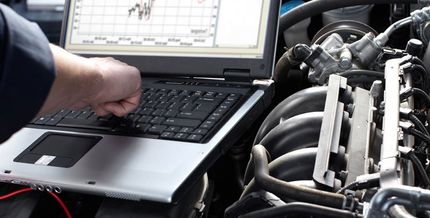The automotive industry has been a cornerstone of global economic development and technological innovation for over a century. From the invention of the first motor vehicles to the advent of electric and autonomous cars, the industry has continuously evolved, driven by advancements in engineering, design, and consumer demands. At the heart of this dynamic industry lies the critical role of car repairs—a vital intersection where the longevity, safety, and performance of vehicles are maintained.

The Automotive Industry: A Brief Overview
The automotive industry began in the late Mot And Service Reading 19th century with pioneers like Karl Benz and Henry Ford, who revolutionized transportation with the development of gasoline-powered vehicles and the introduction of assembly line production. This innovation made cars more affordable and accessible, leading to rapid growth in vehicle ownership and the expansion of the industry.
Throughout the 20th century, the industry continued to innovate, introducing safety features like seat belts and airbags, improving fuel efficiency, and responding to environmental concerns with the development of hybrid and electric vehicles. Today, the industry is on the cusp of a new era, with advancements in autonomous driving, connected cars, and electric powertrains set to redefine the future of transportation.
The Role of Car Repairs in the Automotive Ecosystem
As vehicles have become more complex, the role of car repairs has grown increasingly important. Early automobiles were relatively simple machines, with most repairs involving mechanical work that could be performed by a local mechanic. However, modern vehicles are equipped with advanced technologies, including electronic control units (ECUs), sensors, and software systems that require specialized knowledge and tools to diagnose and repair.
Car repairs play a crucial role in ensuring the safety, reliability, and longevity of vehicles. Regular maintenance, such as oil changes, brake inspections, and tire rotations, helps prevent major issues from developing and keeps vehicles operating efficiently. More complex repairs, such as those involving engine components, transmission systems, or electronic systems, require the expertise of skilled technicians who are trained to work with the latest automotive technologies.
The rise of electric vehicles (EVs) has added a new dimension to the car repair industry. EVs have fundamentally different powertrains compared to traditional internal combustion engine vehicles, with electric motors, battery packs, and regenerative braking systems that require specialized knowledge to service. Repair shops have had to adapt by investing in new equipment and training programs to meet the unique demands of EV maintenance and repair.
The Intersection of Innovation and Maintenance
The intersection of the automotive industry and car repairs is where innovation meets practicality. As automakers push the boundaries of what vehicles can do—whether through autonomous driving features, advanced driver-assistance systems (ADAS), or connectivity—car repair services must evolve to ensure these technologies are maintained and function as intended.
Preventative maintenance is a key aspect of this intersection. Modern vehicles are equipped with a wide range of sensors and systems that monitor their condition in real time. Regular check-ups and software updates are necessary to keep these systems running smoothly and to prevent potential failures that could compromise safety or performance. This proactive approach to vehicle maintenance not only enhances the driving experience but also extends the life of the vehicle.
Challenges and Opportunities in the Future
As the automotive industry continues to evolve, the car repair industry will face new challenges and opportunities. The increasing complexity of vehicles, driven by the integration of new technologies, will require ongoing training and investment in advanced diagnostic tools. Additionally, the rise of electric and autonomous vehicles will demand new skills and knowledge, creating opportunities for repair shops to specialize in these emerging areas.
